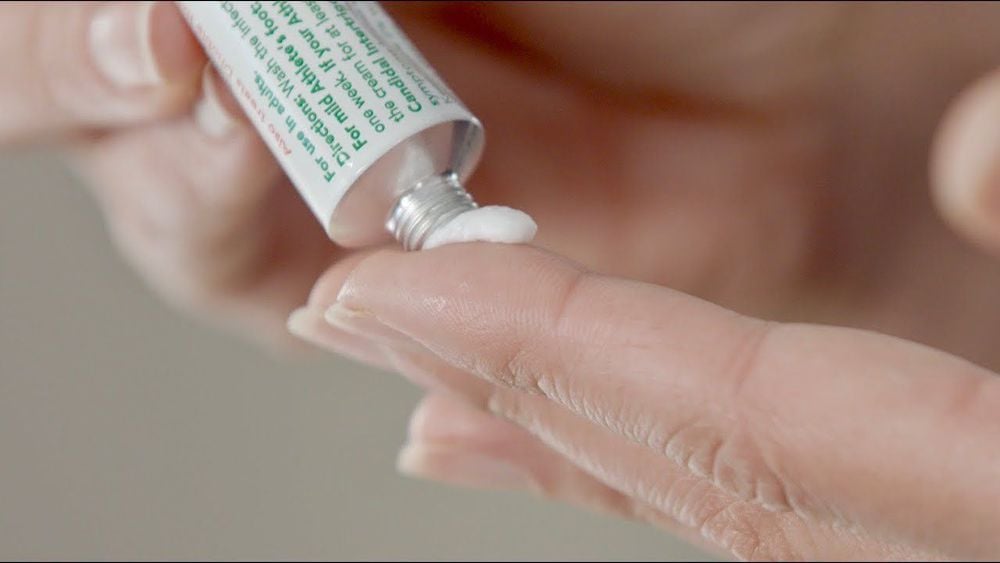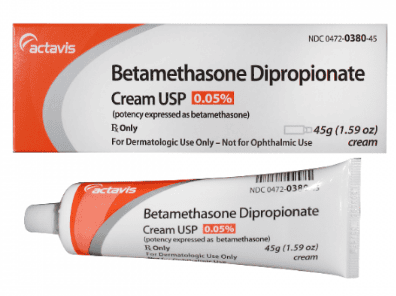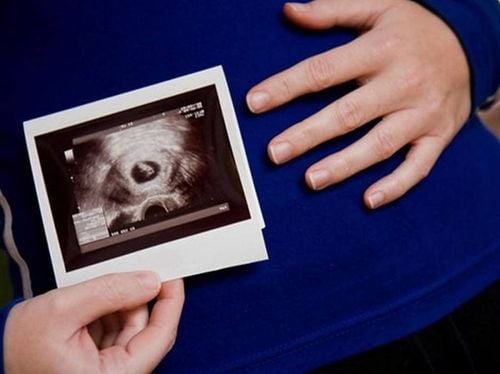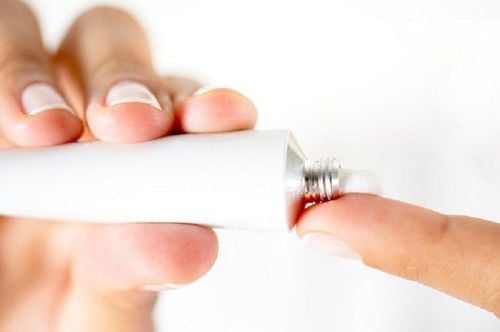This is an automatically translated article.
This article is professionally consulted by Resident Doctor of Pediatrics - Neonatology - Department of Pediatrics - Neonatology - Vinmec Hai Phong International General Hospital.
Eczema can appear as red, scaly patches on your baby's skin, usually during the first few months after birth. The disease is common and very easy to treat. However, for those who are taking care of a baby for the first time, they often wonder what eczema in children will be like?
1. Children with Eczema are understood how?
When a child has eczema, the child's skin appears red, dry patches. The skin is almost always itchy and rough. Newborns can get the disease anywhere on their body. Usually it is on the cheeks or other places like the joints of the hands and feet.
Eczema is easy to confuse baby eczema (also called infantile eczema or atopic dermatitis) with cradle cap. Cradle cap is less red, scaly and usually clears up after 8 months. The disease usually appears on the scalp, sides of the nose, eyelids, eyebrows, and behind the ears.
2. Causes of Eczema in Children
In fact, there are many causes of eczema in children such as:
Family history: If one parent has eczema, your child is more likely to have it too. Problems in the skin barrier, allowing moisture to escape and germs to enter from there causing disease. This is also known to cause skin diseases in children. Eczema occurs when the body makes too few fat cells called ceramides. If you don't have enough of them, your skin will lose water and become very dry.

3. Some Eczema Triggers To Avoid
Every baby is different, but some common eczema triggers to avoid include:
Dry skin: Low humidity, especially during winter when the house is warm and the air is dry. is a cause of eczema development. Irritants: Think scratchy wool, polyester, perfumes, bath soaps, and laundry soaps. Children with eczema may respond to stress by flushing, and that increases eczema symptoms. Hot and sweaty: Both can make the itchiness of infant eczema worse. Allergens: Although uncertain, some experts believe that eliminating cow's milk, peanuts, eggs or certain fruits from a child's food can help control eczema symptoms. Remember that your baby can be exposed to these foods if you eat them before breastfeeding.
4. Does eczema in children go away on their own and how should it be treated?
For eczema, they will usually go away on their own when the child is 2 years old, because at this time the child's resistance is much better. Besides, if parents have a way to take care of and clean the baby's skin, it will help significantly reduce the disease.
To treat eczema in children, parents can apply a few simple ways at home as follows:
Moisturizers: With ceramides is the best choice. They are available over-the-counter and by prescription. If a good moisturizer is not available, an ointment can be used. Using it several times a day will help your baby's skin retain its natural moisture. Parents should apply immediately after bathing. Take a warm bath: This will help moisturize and may also soothe the itch. However, parents should pay attention that the water is not too hot and the bathing time is less than 10 minutes. Use mild, unscented laundry detergent and laundry soap. Fragrant, deodorant, and antibacterial soaps can be irritating to children's sensitive skin. Clean carefully: Only use soap in places where your baby might get dirty, such as the genitals, hands, and feet. Just rinse off the rest of your child's body. Drying: Pat skin dry and do not rub. Wear comfortable clothing: To avoid irritation of clothing rubbing against skin, your child should wear loose-fitting cotton clothing. Avoid wearing clothes that are too thick or cover too many blankets. If the baby is hot and sweaty, it can trigger an eczema flare-up.

5. What to do when itchy eczema?
Try to keep your baby from scratching the itchy skin. Scratching can make the rash worse, lead to infection, and cause the irritated area to become thicker and more leathery.
Should cut nails regularly, then use a file to cut off the edge of the nail so that the child does not scratch to avoid damage to the skin. You can also use some over-the-counter medicinal products, such as hydrocortisone cream and ointment, to target itching and inflammation. Check the instructions and do not use them for too long, otherwise it may cause thinning of the skin in the affected area.
You should also take your child to the hospital if the eczema does not improve within a week. Also, check with your doctor if yellow or light brown scabs or blisters containing pus appear on the birthmark. This could be a sign of a bacterial infection that requires antibiotics.
Pediatrics - Vinmec International General Hospital is a reliable medical examination address, when it receives and treats common diseases in young children and infants such as: digestion, nutrition, respiratory, skin diseases... For children with eczema, the doctor will give intensive treatment to help bring high efficiency without having to spend too much time traveling between departments.
The examination and treatment are always performed by specialists with many years of experience in combination with high quality drugs. Therefore, parents can be assured of the quality of medical examination at the hospital.
Please dial HOTLINE for more information or register for an appointment HERE. Download MyVinmec app to make appointments faster and to manage your bookings easily.













